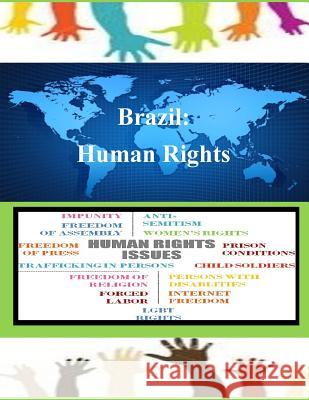Brazil: Human Rights » książka
Brazil: Human Rights
ISBN-13: 9781502826565 / Angielski / Miękka / 2014 / 36 str.
Brazil is a constitutional, multi-party republic. In 2010 voters chose Dilma Rousseff as president in elections widely considered free and fair. Civilian authorities maintained control over security forces. Security forces committed some human rights abuses. The most significant human rights abuses included poor and at times life-threatening conditions in some prisons, sex trafficking of children and adolescents, forced labor, and exploitative working conditions. Other human rights problems included excessive force and unlawful killings by state police; excessive force, beatings, abuse, and torture of detainees and inmates by police and prison security forces; prolonged pretrial detention and inordinate delays of trials; judicial censorship of media; government corruption; violence and discrimination against women; violence against children, including sexual abuse; social conflict between indigenous communities and private landowners that occasionally led to violence; discrimination against indigenous persons and minorities; violence and social discrimination against lesbian, gay, bisexual, and transgender (LGBT) persons; insufficient enforcement of labor laws; and child labor in the informal sector. The government continued to prosecute officials who committed abuses; however, an inefficient judicial process delayed justice for victims and perpetrators of human rights violations.
Zawartość książki może nie spełniać oczekiwań – reklamacje nie obejmują treści, która mogła nie być redakcyjnie ani merytorycznie opracowana.











